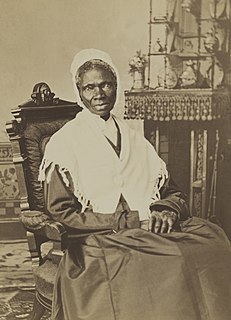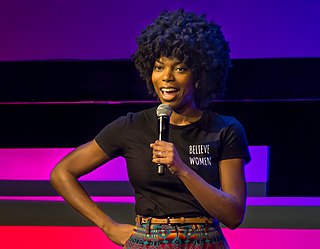A Quote by Cory Booker
While most men don't have first-hand experience with gender-based discrimination, we can still be powerful allies for advancing women's rights. We need to do a better job of listening to women and standing up for what's right, even when it's not popular or comfortable.
Related Quotes
I conceived of myself in large part as a teacher. There wasn't a great understanding of gender discrimination. People knew that race discrimination was an odious thing, but there were many who thought that all the gender-based differentials in the law operated benignly in women's favor. So my objective was to take the Court step by step to the realization, in Justice Brennan's words, that the pedestal on which some thought women were standing all too often turned out to be a cage.
I honestly feel that most young women out there are feminists - they just don't know that the word "feminism" describes the things they believe in. I wants to show young women that while feminists of the past did incredible work and that while the relative equality we experience now is due to their hard work, we still have a ways to go. We still have to fight for our rights and be vigilant in terms of keeping the rights we do have.
This moment right here, me standing up here all brown with my boobs and my Thursday night of network television full of women of color, competitive women, strong women, women who own their bodies and whose lives revolve around their work instead of their men, women who are big dogs, that could only be happening right now.
Something happens in the middle when women are in their 30s, and we can start with an array of things that happen, whether it is - you hope this doesn't exist any longer - but overt discrimination; whether it's subtle gender discrimination, which absolutely does exist among men and women; whether it's the fact that it gets hard to juggle at that point children, housework, etc. But people still have to go home and cook the dinner and clean the dishes and get the beds made and so on. And so, for a whole bunch of reasons, women tend to fall out in their 30s still today.
We have come a long way, particularly in terms of women becoming more equal under the law. Fortunately, workplace discrimination is now a crime - but unfortunately women still experience it. Fortunately, sexual harassment is now a crime - but unfortunately women still experience it. Fortunately, the assault of women is now a crime - but unfortunately women still experience it. The list goes on.
The backlash against women's rights would be just one of several powerful forces creating a harsh and painful climate for women at work. Reagonomics, the recession, and the expansion of a minimum-wage service economy also helped, in no small measure, to slow and even undermine women's momentum in the job market. But the backlash did more than impede women's opportunities for employment, promotions, and better pay. Its spokesmen kept the news of many of these setbacks from women. Not only did the backlash do grievous damage to working women C it did on the sly.
There is a great stir about colored men getting their rights, but not a word about the colored women; and if colored men get their rights, and not colored women theirs, you see the colored
men will be masters over the women, and it will be just as bad as it was before. So I am for keeping the thing going while things are stirring; because if we wait till it is still, it will
take a great while to get it going again.
It's true that in a lot of western feminist movements, you see women working singularly from men. Suffragettes and the women's rights movement in the 60s here, but when I think of the Islamic feminist movement, I think of a lot of men who are very much standing with the women. It really feels like in equal numbers. Women are catching up in the field because we were not given access to knowledge and encouraged into these studies and so these men are helping us and empowering us. They are men of conscience who are fed up with this assumption that they're entitled.
Many women, particularly young women, have claimed the right to use the most explicit sex terms, including extremely vulgar ones, in public as well as private. But it is men, far more than women, who have been liberated by this change. For now that women use these terms, men no longer need to watch their own language in the presence of women. But is this a gain for women?


































